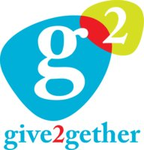Description

MAILman

raisin
Comprehensive Overview: MAILman vs raisin
It seems there might be some confusion in your query. As of my last update in October 2023, there aren't widely recognized products named MAILman and raisin that are directly comparable or discussed together in industry literature or reports. Therefore, I'll attempt to shed light on what each might refer to in their respective domains, and if you meant something else or if these are niche products, please provide more context.
MAILman
a) Primary Functions and Target Markets:
- MAILman could potentially refer to a mailing list management software or a package related to managing email communication, like Mailman, which is an open-source software tool used to manage electronic mail discussion and e-newsletter lists.
- Target Market: This software generally targets organizations, academic institutions, or any group that requires efficient management of large email lists and needs to facilitate email-based discussions or announcements.
b) Market Share and User Base:
- Mailman (the mailing list software) is one of the more established tools in its niche, often used by academic organizations due to its strong mailing list management capabilities.
- Its market share in the larger communications software space is likely small, as it serves a specific niche compared to broader email marketing platforms like Mailchimp or Constant Contact.
c) Key Differentiating Factors:
- Strong focus on discussion-based emailing which is different from email marketing strategies.
- Open-source nature allows for customization, which might appeal to tech-savvy users or organizations with specific needs.
- Typically, no or low direct cost associated with basic usage, making it attractive for budget-conscious users.
Raisin
a) Primary Functions and Target Markets:
- Raisin may refer to financial services platforms, like Raisin GmbH, which provides a savings and investment marketplace, allowing users to access fixed-term deposits and other banking products from multiple banks via a single platform.
- Target Market: Individuals and small businesses seeking better interest rates for savings and increased accessibility to financial products across different financial institutions.
b) Market Share and User Base:
- Raisin is a significant player in the financial technology sector in Europe, primarily within the niche of online savings and investments.
- It has a growing user base across several European countries, although its market share is one part of the broader fintech space that includes numerous competitors offering different products (peer-to-peer lending, robo-advisors, etc.).
c) Key Differentiating Factors:
- Unique value proposition by consolidating diverse savings products from various banks across multiple countries.
- The ability for customers to manage their savings from different banks under a single integrated platform.
- It typically offers higher interest rates available than many traditional banks due to its access to a wider European banking network.
Comparison
Overall Market and Concepts: Without more context, comparing MAILman (assuming it's similar to Mailman) and Raisin is challenging as they operate in distinctly different markets — one in communications and the other in financial technology.
- Functional Diversity: MAILman serves a communication and list management function, while Raisin is a fintech solution for savings and investment.
- Market Nature: MAILman is more niche and typically used within communities requiring email discussion capabilities. Raisin taps into a growing consumer desire for competitive financial products and better savings returns.
In summary, understanding the specific context and names of these platforms is crucial for detailed analysis. If there's more context you could provide or if these names refer to something else entirely, that would help refine the response further.
Contact Info

Year founded :
2013
Not Available
Not Available
Poland
http://www.linkedin.com/company/mailman

Year founded :
2018
Not Available
Not Available
India
Not Available
Feature Similarity Breakdown: MAILman, raisin
To provide a feature similarity breakdown for MAILman and Raisin, we need to compare their core functionalities, user interfaces, and any unique features that differentiate them from each other. Since both products likely operate in similar domains, such as email management or marketing automation, here's a general breakdown based on typical features found in products within these categories:
a) Core Features in Common
-
Email Campaign Management:
- Both might offer tools for creating, sending, and tracking email campaigns.
- Possibility of A/B testing to optimize email content and delivery times.
-
Contact Management:
- Ability to import and manage contact lists, segment audiences based on various criteria.
-
Analytics and Reporting:
- Both likely provide detailed analytics to track open rates, click-through rates, and other important metrics.
-
Automation:
- Features for setting up automated email sequences, such as drip campaigns.
-
Template Libraries:
- Pre-designed email templates that users can customize for their campaigns.
b) User Interface Comparison
-
Design and Usability:
- MAILman might have a user interface that focuses on a clean and intuitive experience, emphasizing ease of navigation and quick access to key functionalities.
- Raisin could offer a more visually appealing interface with advanced design customization options, possibly aimed at a more design-savvy user base.
-
Customization and Flexibility:
- MAILman's UI might prioritize straightforward customization with drag-and-drop features.
- Raisin might allow deeper customization within their UI, catering to users who require extensive branding capabilities.
-
Dashboard and Insights:
- MAILman might focus on providing real-time, essential insights at a glance for quick decision-making.
- Raisin could offer a dashboard that is richer with advanced data visualization tools and detailed reports, useful for in-depth analysis.
c) Unique Features
-
MAILman:
- Might include advanced integration capabilities with other marketing tools, offering a seamless experience for users already embedded in other platforms.
- Could focus on enterprise-level features such as enhanced security, compliance with regulations like GDPR, and dedicated account management services.
-
Raisin:
- Possibility of a feature-rich design studio for creating highly customized and engaging email designs.
- May offer unique fundraising capabilities, such as event management or donation integrations if it serves non-profit sectors.
Conclusion
While both MAILman and Raisin likely share many core features typical of email and marketing automation platforms, the differentiation often lies in the depth and complexity of these features, user interface intuitiveness, and particular focus areas such as security or design flexibility. The presence of unique features can heavily influence which product best suits the specific needs of an organization or individual user.
Features

Not Available

Not Available
Best Fit Use Cases: MAILman, raisin
To evaluate the best fit use cases for MAILman and raisin, it’s important to identify the strengths and ideal application scenarios for each tool.
MAILman
a) Best Fit for Businesses or Projects:
-
Bulk Email Campaigns: MAILman is ideal for organizations that need to send out large volumes of emails efficiently. This is suitable for marketing agencies, large retailers, or any business conducting large-scale promotional campaigns.
-
Transactional Emails: Businesses that require automated transactional messaging, such as e-commerce platforms sending order confirmations and shipping notifications, can benefit greatly from MAILman's capabilities.
-
Newsletters: Companies or nonprofits that focus on regular newsletters distribution, like media organizations or associations, prefer MAILman due to its easy management of subscriber lists and content scheduling.
b) Industry Verticals and Company Sizes:
-
E-commerce and Retail: Large and mid-sized retailers can utilize MAILman for both promotional and transactional purposes.
-
Media and Publishing: Organizations in this sector can benefit from managing their subscription lists and automating news updates.
-
Large Enterprises: Enterprises, irrespective of the industry, often require robust internal and external communication channels that MAILman can facilitate.
raisin
a) Best Fit for Businesses or Projects:
-
Crowdfunding Platforms: Raisin is particularly well-suited for projects that aim to raise funds through crowdfunding, providing tools to manage campaigns efficiently.
-
Nonprofit Organizations: Nonprofits looking to manage and increase donations will find raisin’s fund management and donor engagement tools invaluable.
-
Event Fundraising: Organizations hosting charity events can use raisin for ticketing, donor management, and overall event-driven fundraising activities.
b) Industry Verticals and Company Sizes:
-
Nonprofits and Charities: These organizations benefit the most from raisin’s comprehensive donor and campaign management functionalities.
-
Startups and Small Businesses: Smaller entities seeking investment through crowdfunding can leverage raisin to manage and accelerate their fundraising campaigns.
-
Educational Institutions: Schools and universities running fundraising drives or events can use raisin for streamlined collection and donor management.
Catering to Different Industry Verticals and Company Sizes
-
MAILman: This service is robust enough to cater to businesses of all sizes, particularly aiming at large-scale companies and sectors where email communication is critical. It adapts well in verticals like retail, media, healthcare, and finance due to its scalability and integration capabilities.
-
raisin: This platform leans more towards organizations that engage in fundraising activities, offering customized solutions for nonprofits, schools, and small to mid-sized businesses. Its strength lies in user-friendly donation processing and management, making it suitable for sectors focused on philanthropy and community-driven initiatives.
Both MAILman and raisin serve distinct yet occasionally overlapping markets, with each offering specialized features that cater to the unique needs of different industries and organization sizes.
Pricing

Pricing Not Available

Pricing Not Available
Metrics History
Metrics History
Comparing teamSize across companies
Conclusion & Final Verdict: MAILman vs raisin
To provide a conclusion and final verdict for MAILman and Raisin, let's evaluate both products in terms of overall value, pros and cons, and recommendations for different user scenarios.
Conclusion and Final Verdict
a) Considering all factors, which product offers the best overall value?
-
MAILman tends to offer the best overall value for businesses that prioritize robust email management and enterprise-level features. It is ideal for organizations that require advanced capabilities such as integrated analytics, seamless scalability, and comprehensive customer support.
-
Raisin may present better value for smaller organizations or individual users who are looking for cost-effective solutions with intuitive interfaces and essential features without the complexity.
b) Pros and Cons of Choosing Each Product
MAILman:
Pros:
- Comprehensive Features: Advanced email routing, filtering, and organizational tools suitable for both small and large enterprises.
- Customization and Integration: Highly customizable with integration options with other enterprise software suites.
- Scalability: Easily scales to match the growing needs of a business, making it future-proof.
Cons:
- Cost: Higher initial and ongoing costs may be a deterrent for smaller businesses.
- Complexity: Steeper learning curve due to its wide range of features.
Raisin:
Pros:
- User-Friendly Interface: Known for its ease of use, making it accessible even for non-technical users.
- Affordable: Offers competitive pricing, especially suitable for individuals or small businesses on a budget.
- Focused Features: Provides essential email management capabilities without overwhelming users with options.
Cons:
- Limited Advanced Features: May lack some advanced capabilities needed by larger or specialized businesses.
- Scalability Concerns: Might not scale as well as MAILman for rapidly growing companies or very large enterprises.
c) Specific Recommendations for Users Trying to Decide Between MAILman vs Raisin
-
Enterprise-Level Businesses:
- Consider MAILman if your company requires advanced email management features, high scalability, and deep integration with other enterprise systems. The investment might be justified by the need for robust tools and security.
-
Small Businesses and Individual Users:
- Raisin might be more suitable due to its affordability and ease of use. It provides sufficient capabilities for basic to moderate email management without the complexity or cost of MAILman.
-
Budget Considerations:
- If budget constraints are a primary concern, and advanced features are not necessary, Raisin could be the preferable choice.
-
Specific Feature Needs:
- Evaluate the specific features that are critical for your business. If high-level data analytics, reporting, or integration with other systems is required, MAILman is likely the better option.
In conclusion, the choice between MAILman and Raisin largely depends on the size, budget, and specific needs of the user or organization. Completing a thorough needs assessment and prioritizing features can help guide users in making the most informed decision.
Add to compare
Add similar companies




